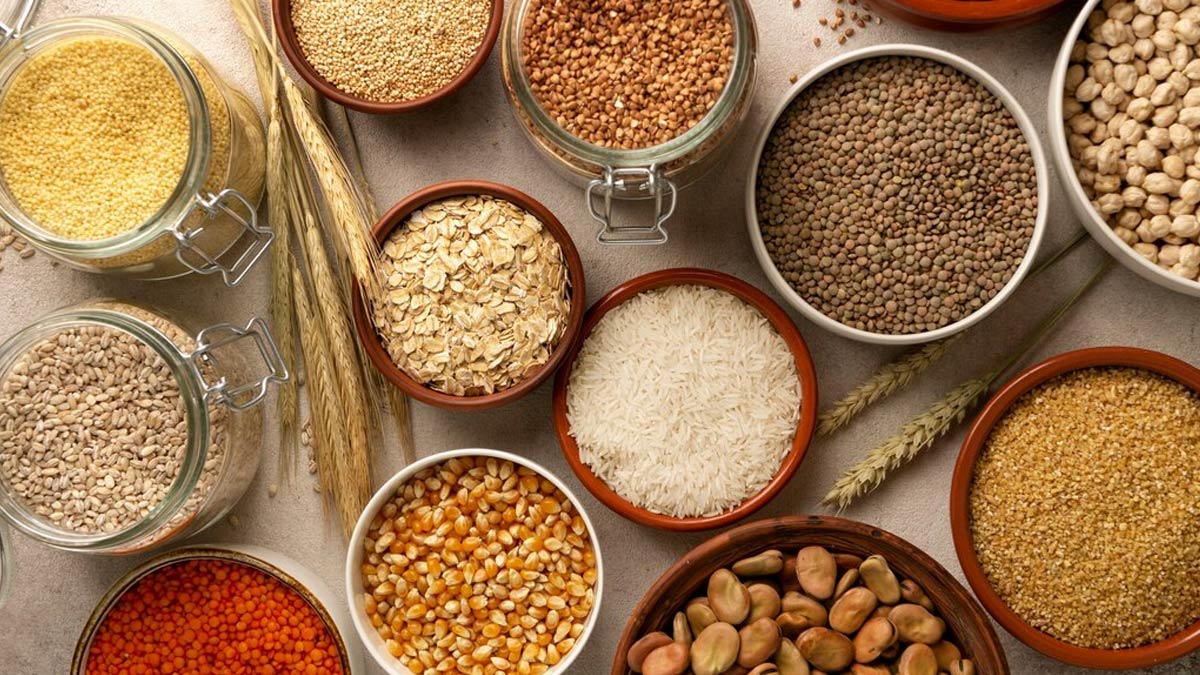
As the chilling winds of winter approach, it's time to replenish our bodies with foods that not only provide warmth but also bring a number of health advantages. Ragi, a variety of millet that has long been a staple in many traditional cuisines, is one such nutritional powerhouse.
Table of Content:-
Blood Sugar Regulation
“Ragi, unlike processed grains, has a low glycemic index, which means it slowly releases glucose into the system. This makes it a suitable choice for those looking to manage blood sugar levels, a concern that may be increased during the colder months,” said Ruchika Jain, Chief Dietitian, Fortis Hospital.

Rich in Nutrients
Ragi is a nutrient-dense whole grain that is high in vitamins and minerals including calcium, iron, and fibre. These nutrients are essential for overall health, bone strength, and preventing anaemia.
Also read: Can Millets Help In Weight Loss? Know About 5 Types Of Millets & Their Benefits
It Can Keep You Warm In Winters
Millets, such as ragi, are recognised for their natural warming characteristics. Consuming meals with warming properties can be helpful to regulate body temperature and keep you warm on the inside during chilly weather.
Increased Energy
Ragi is high in complex carbs, which provide a steady supply of energy. Ragi can help battle the tiredness that is commonly associated with the cold season by keeping you energetic throughout the day.
Gluten-Free Goodness
Journal of Food Science and Technology, ragi is naturally gluten-free, making it an ideal choice for people with gluten sensitivities or celiac disease. This versatile grain opens up dietary options for those seeking alternatives to wheat and other gluten-containing grains.
Improved Digestion
“Ragi is high in fibre which contributes to better digestion and can help to deal with constipation. Maintaining a healthy digestive system is particularly important during the cold season when digestive issues may become more prevalent,” Dietitian Jain added.

Immune System Support
Millets, including ragi, contain essential nutrients like zinc and vitamin C that contribute to a robust immune system. Strengthening your immune defences becomes crucial as colds and flu become more common during the colder months.
Also read: Best Millets to Consume for Lowering Blood Sugar Levels
Versatility in Cooking
Ragi is incredibly versatile and can be incorporated into various dishes such as porridge, rotis, dosas, and even baked goods. This adaptability allows you to enjoy the health benefits of ragi in a variety of delicious ways.
Consider including ragi in your diet as you prepare for the winter season. Ragi offers a variety of health benefits that can help you keep warm, energised, and well-nourished throughout the colder months, whether in the shape of a soothing porridge for morning or a healthy roti for dinner. Embrace the season with ragi goodness and allow your health to grow amid chilling winters.
Also watch this video
How we keep this article up to date:
We work with experts and keep a close eye on the latest in health and wellness. Whenever there is a new research or helpful information, we update our articles with accurate and useful advice.
Current Version